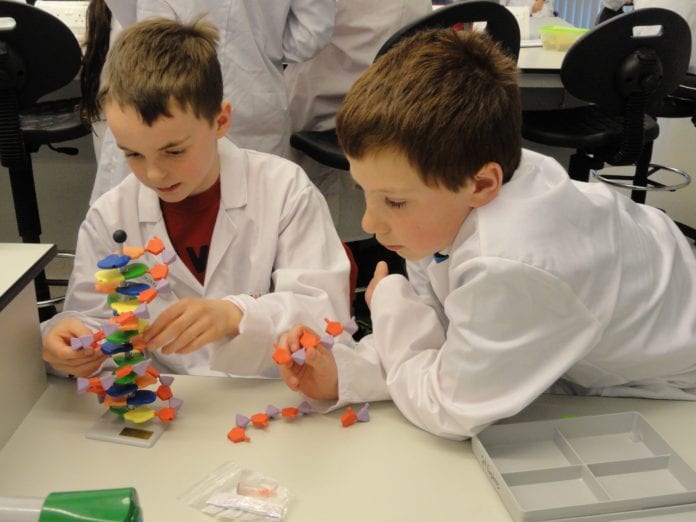NUI Galway’s School of Natural Sciences Bio-EXPLORERS programme, in collaboration with Kitchen Chemistry, is now taking bookings for its three Summer Science Camps.
Attendees can choose to attend the first camp from 2-6 July, the second from 9-13 July, or the third camp from 16-20 July.
The camp is open to all young budding scientists aged between 8 and 13 years old and participants will get a chance to work as real scientists by performing and analysing experiments in a real research environment.
The Bio-EXPLORERS programme is composed of two science communication and public engagement initiatives: Cell EXPLORERS directed by Dr Muriel Grenon and Eco-EXPLORERS directed by Dr Michel Dugon.
With Dr Michel Dugon, the host of the RTÉ’s Bug Hunters, children will participate in activities such as discovering live local and exotic plants and animals, studying their habitats, and understanding how they interact with their environment.
With the dynamic team of Cell EXPLORERS, children will learn how cells make our bodies work. They will run their own experiments, build models, observe their own cells under microscopes and extract DNA from cells. Each camp will also include a session with Kitchen Chemistry, from NUI Galway’s School of Chemistry, who run fun, hands-on experiments that bring chemistry to life!
The primary goal of these NUI Galway science outreach programmes is to inspire interest in science among young people and to impact positively on science education.
All three programmes run activities designed to engage children in a hands-on way and stimulate their interest in exploring science-related themes. They have engaged thousands of children in the West of Ireland and are very active during the Galway Science and Technology Festival.
Bio-EXPLORERS have run successful summer and Easter science camps since 2014, in addition to the very popular ‘Scientist for a Day’ one-day workshops during mid-terms, run in conjunction with Kitchen Chemistry. These camps provide a fun take on science where children can get involved and experiment as real scientists do.
Small participant numbers, hands-on activities and a good ratio of well-trained, interactive demonstrators maximize the learning environment.
This year’s summer camps will each run over five days from 9.30am to 4.30pm daily and places are limited and will be allocated on a first-come first-served basis. The cost is €150 per child for this course packed with fun and exciting activities.












